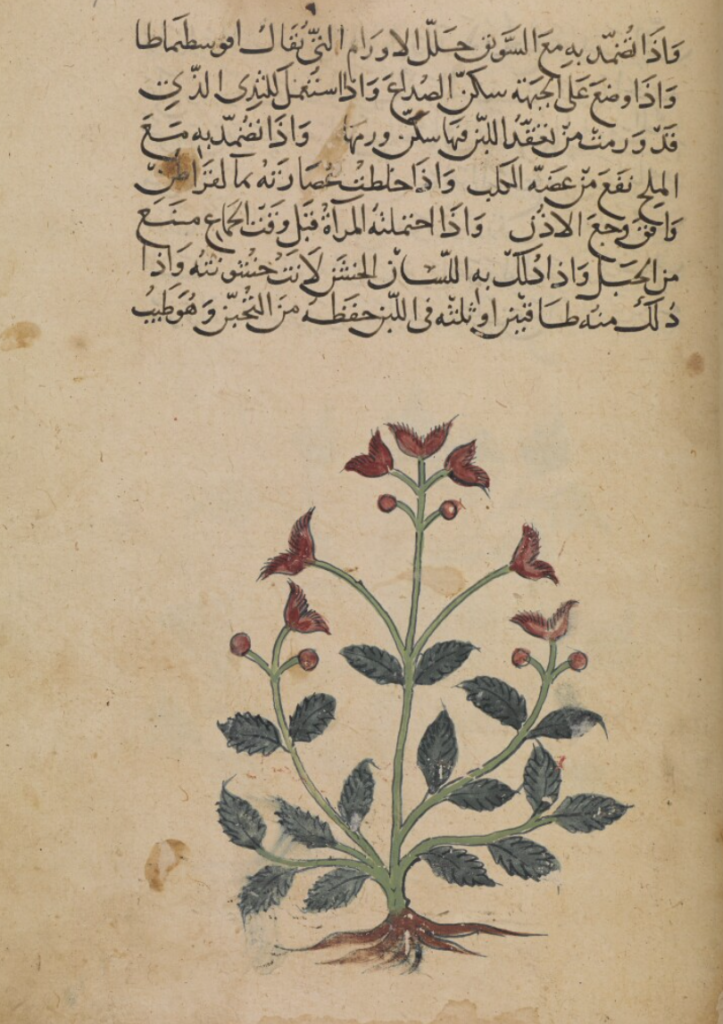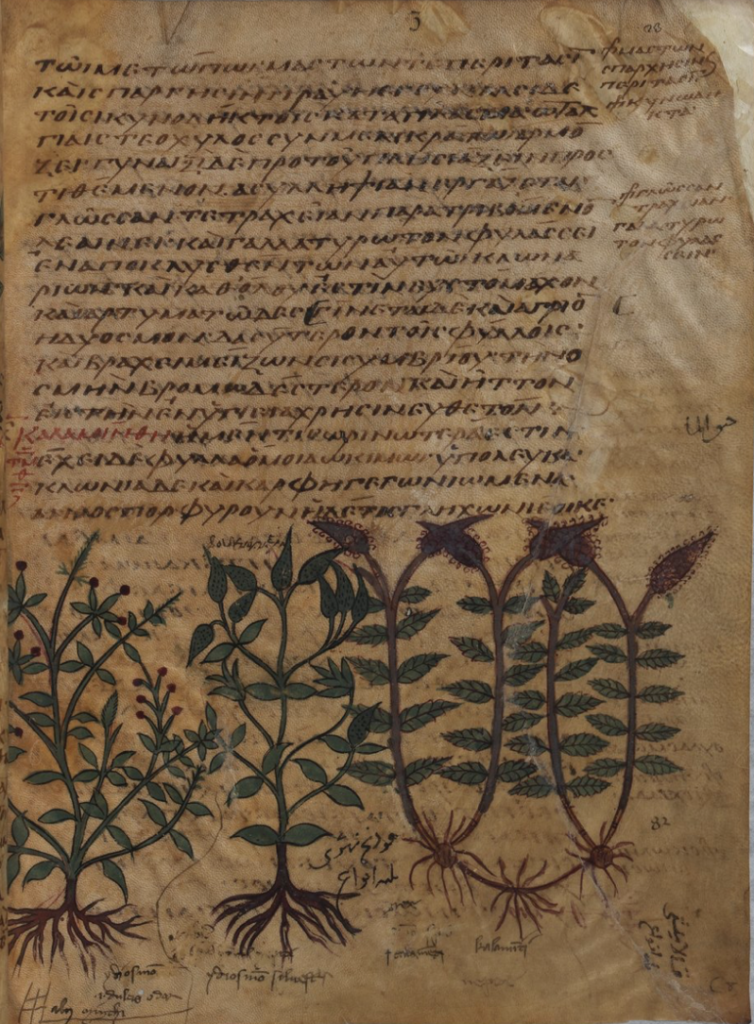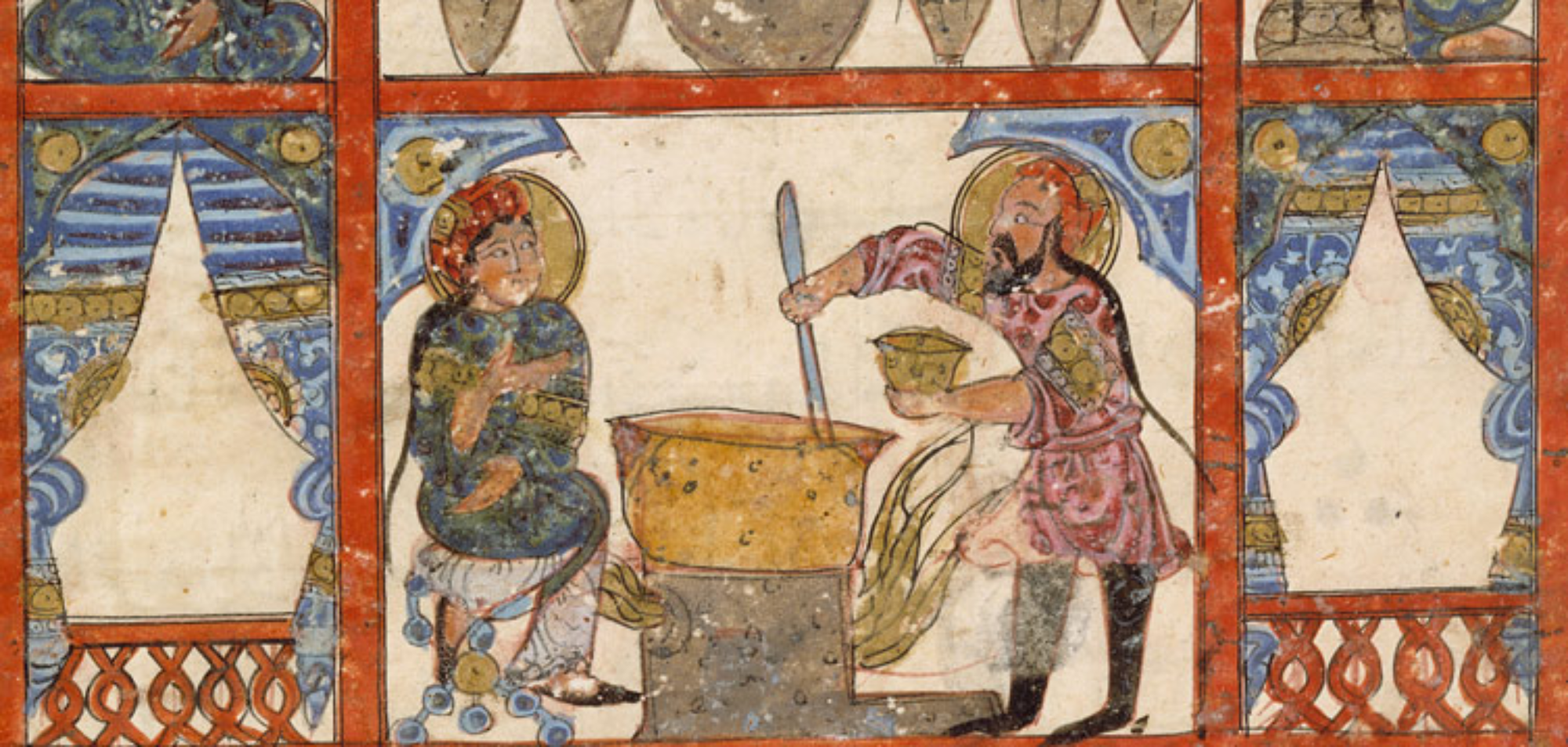The history of the herb is a long one and the ancient Egyptians already used it as a digestive and anti-flatulent. Ancient Greek scholars like Dioscorides believed that mint could prevent women from becoming pregnant, while its juice was thought to staunch blood, arouse sexual desire, and stop hiccups, vomiting and cholera. However, there is little evidence of the use of mint in Greek food and dining.
In Arabic, the word for ‘mint’ is na’na’ (نعناع, نعنع), though, like in Antiquity, it did not have the modern meaning of peppermint (Mentha × piperita) since this is a a cross between watermint and spearmint (Mentha spicata subsp. spicata) and was only described in the late 17th century. Other words for mint varieties included ḥabaq bustānī (حبق بستاني) and fūdhanj (فوذنج), also spelled fūtanj (فوتنج). The latter word is a Middle Persian borrowing, though it probably goes back to a Sanskrit word for several fragrant plants and usually referred to varieties of mint growing next to rivers (Mentha aquatica; fūtanj nahrī/فوتنج نهري), pennyroyal (Mentha pulegium; fūtanj barrī/ فوتنج برِّي) , as well as wild basil (Clinopodium vulgare; fūtanj jabalī/فوتنج جبلي ). Besides spearmint, na’na’ often probably referred to whorled mint (Mentha × verticillata), as well as other subspecies.
Mint is one of the most frequently used herbs in medieval Arab cuisine, and was often also added at the end, for decoration and as a flavour enhancer. It was used fresh and dried, as well juiced; in savoury dishes, it is called for in about a quarter of dishes in Andalusian, Iraqi and Syrian treatises, and in a third of Egyptian ones.
Muslim phsyicians claimed mint strengthens and heats the stomach, and suppresses hiccups. Ibn Sīnā (Avicenna) recommended it to increase sexual desire, whereas a few bunches of mint, together with pomegranate seeds are useful against cholera and vomiting. Ibn Jazla (11th c.) suggested mint juice to staunch blood, and a mint compress for thickening breast milk. According to al-Samarqandī (d. 1222), water mint makes food appetizing, calms nausea, relieves vomiting and diarrhea, and kills worms.


